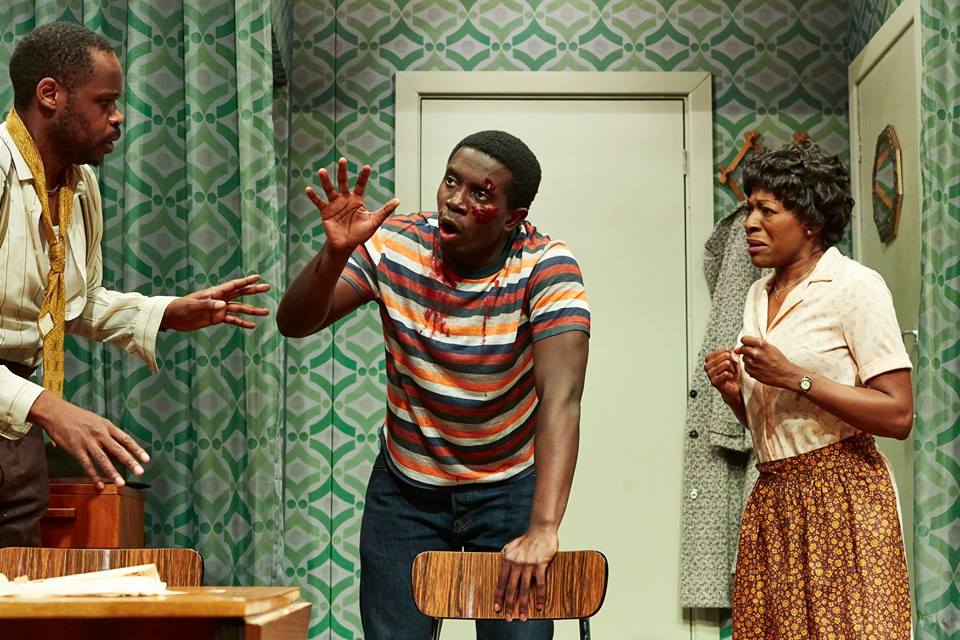
Bristol, 1963; a cosy domestic setting in a council flat. Dreary brown carpet and a shabby velour sofa. A single mum works hard to bring up her two kids. She lets them dream but tries to keep their heads in the real world: show respect and manners, never leave the dinner table before everyone has finished and tell your mum where you’re going. It’s Christmas; there are no presents but it’s a time of surprises and she gets a big one when her errant husband saunters back through the front door after deserting the family years ago. Can a man change?
Writer Chinonyerem Odimba sets this powerful play against the background of the Black Civil Rights campaigns in Bristol in the sixties. With recent publicity about the Windrush generation the play is particularly relevant at the moment. Themes of racism, unemployment and community integration are all explored. The crucial element is that Odimba has mixed them into a conventional family situation, with all the emotional tension, trauma and drama that comes with it. Although it’s not all solemn stuff: there are happy and funny moments amongst the stress, just like in any family. The actors do well in oscillating between the laughter and the tears.
Donna Berlin stands out amongst the cast just as her character Mavis, the mum, stands firm at the centre of her family. Kudzai Sitima and Emily Burnett are convincing children. Jade Yourell is entertaining as Bristolian Margot, the nosy and naive but endearing neighbour… ‘We’re a bit busy Margot!’. Fode Simbo plays the strong-willed and creative teenage boy while Seun Shote is his wayward but amiable dad, the Hustler. And despite the fact that the central themes in the play are about race and integration, it’s the emotional relationship between a young man and his father which resonates most strongly. Dad wants to make his son proud and tries to win him over with gifts and strong words but ‘it takes more than a word to make a father’ scowls Junior. There are reflections on sibling rivalry and growing up, as well as family and neighbourhood interactions. The play also focuses on what it really means to be black and beautiful; the eponymous young daughter of the family, Princess, wants to be a beauty queen. And it seems that some things haven’t changed as the loudest cheers at the end of the night go to the female members of the community cast who parade the stage in party frocks and sashes.
A light touch from director Dawn Walton with clever and delicate handiwork from the creative design team lets the acting shine and the words resonate. Although the denouements could have been clearer and more strongly emphasised, the story is engrossing and the show is enjoyable. As Princess says: ‘Secrets are bad things’ and this play exposes some of the bleak facts about life for black British families in Britain during the sixties. ★★★☆☆ Adrian Mantle 15th February 2019

